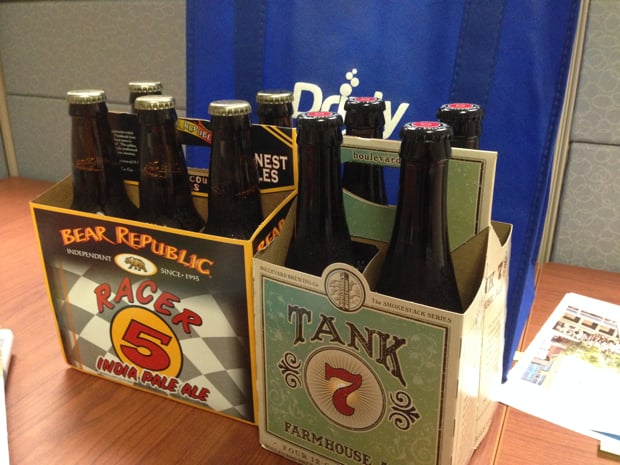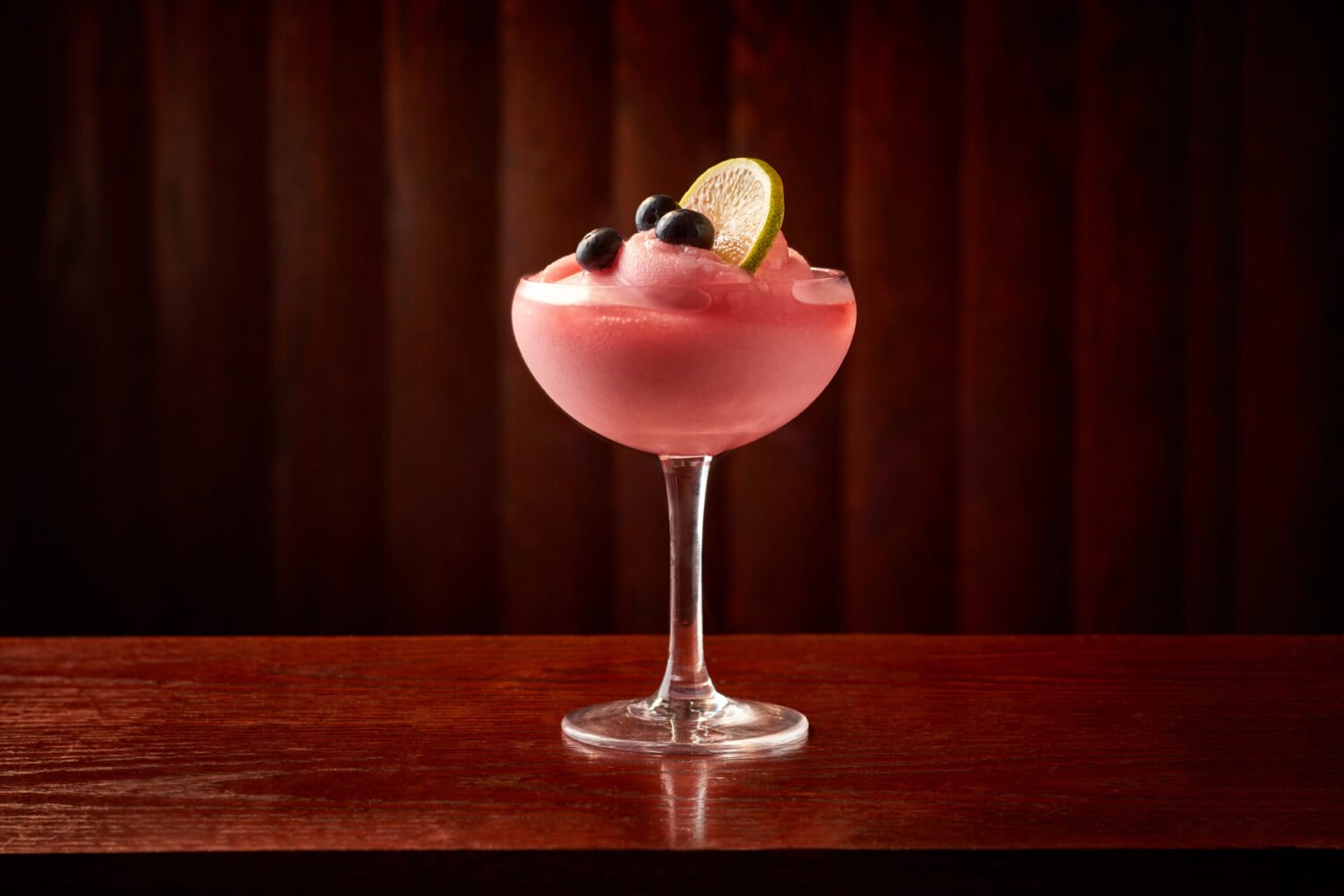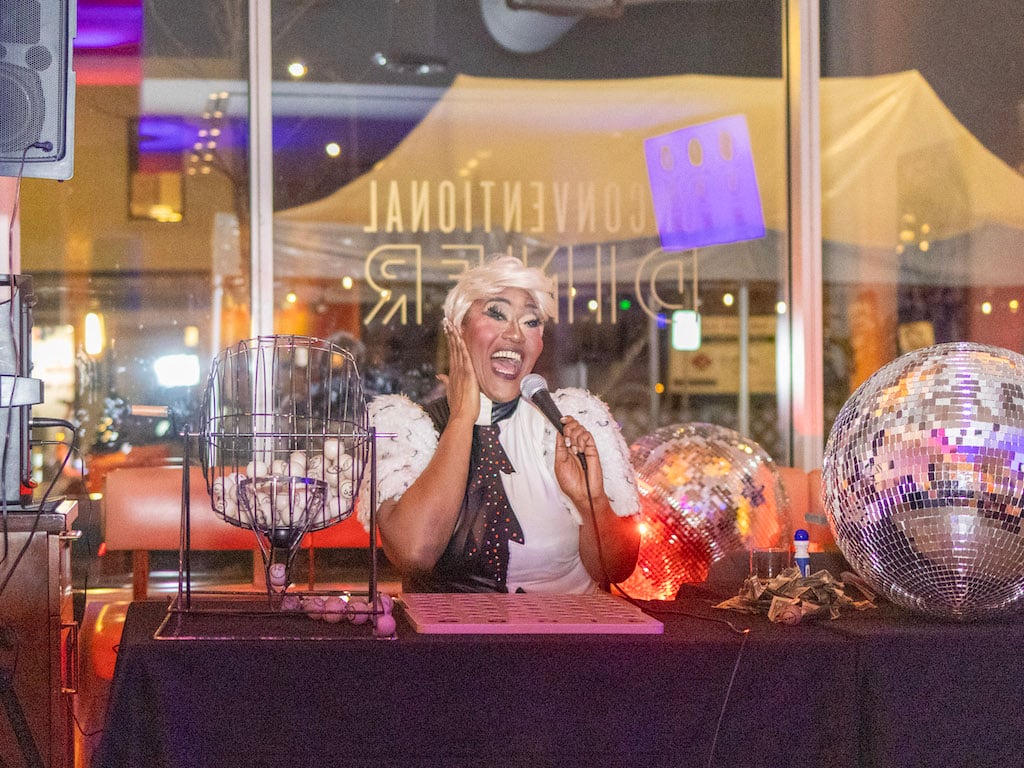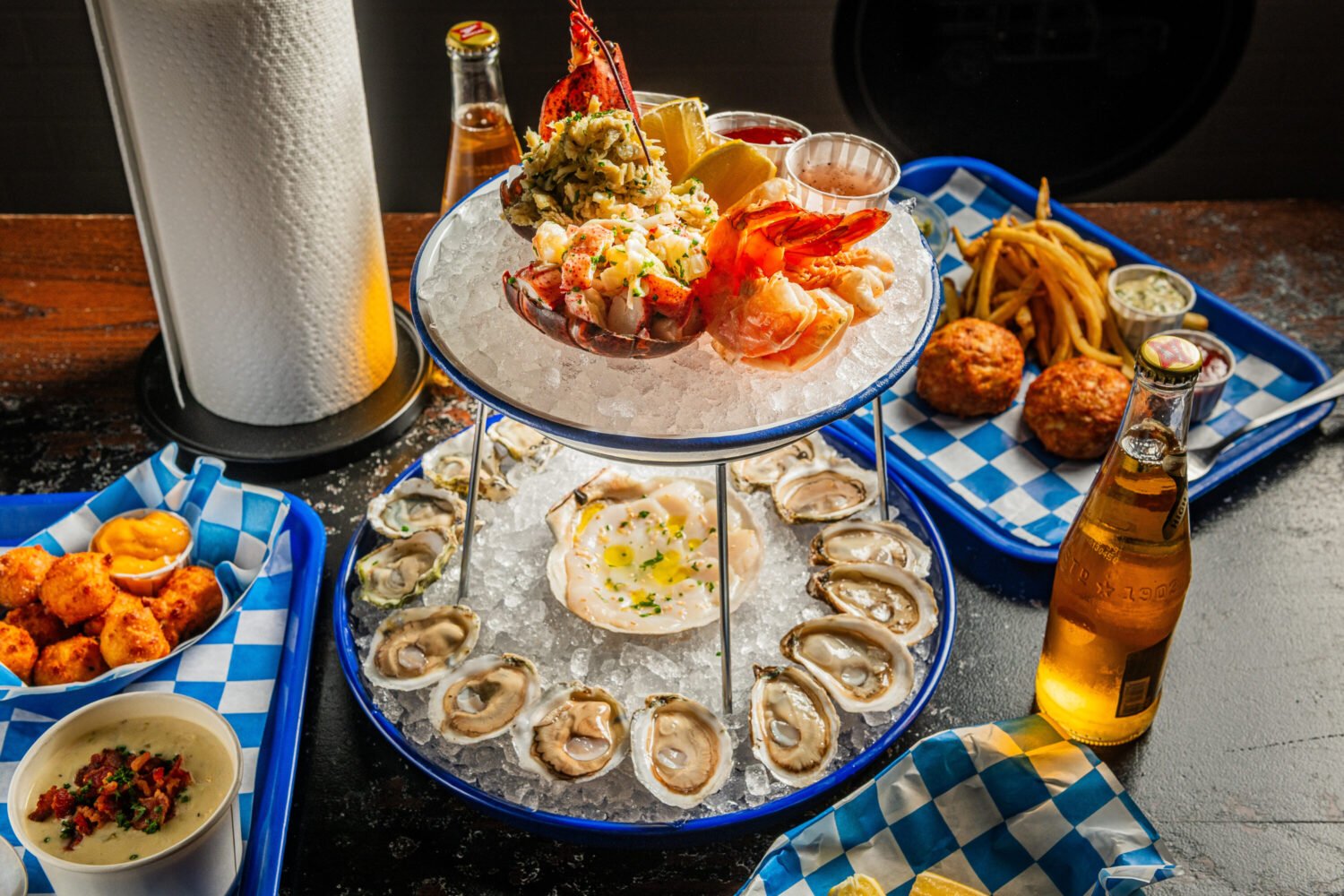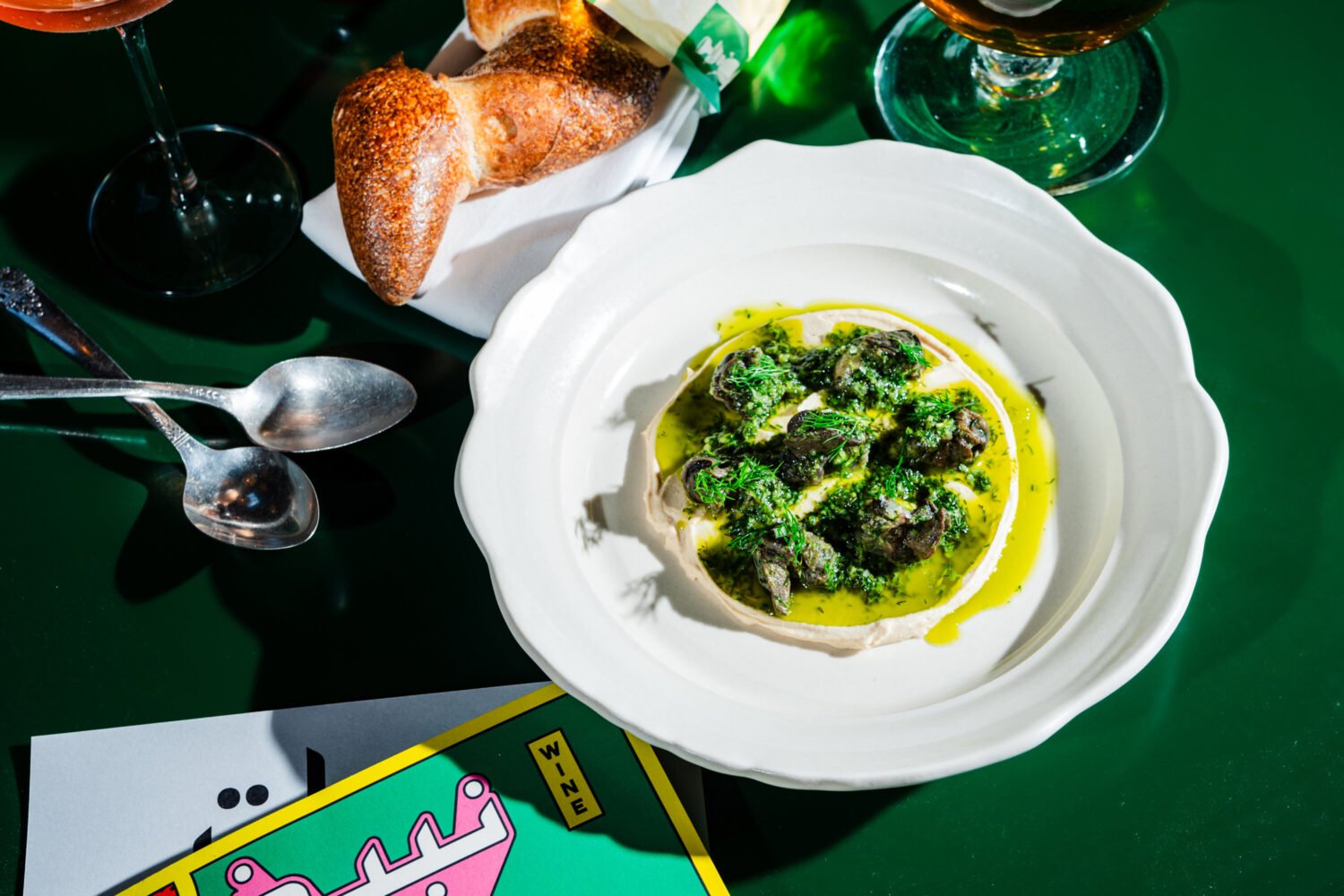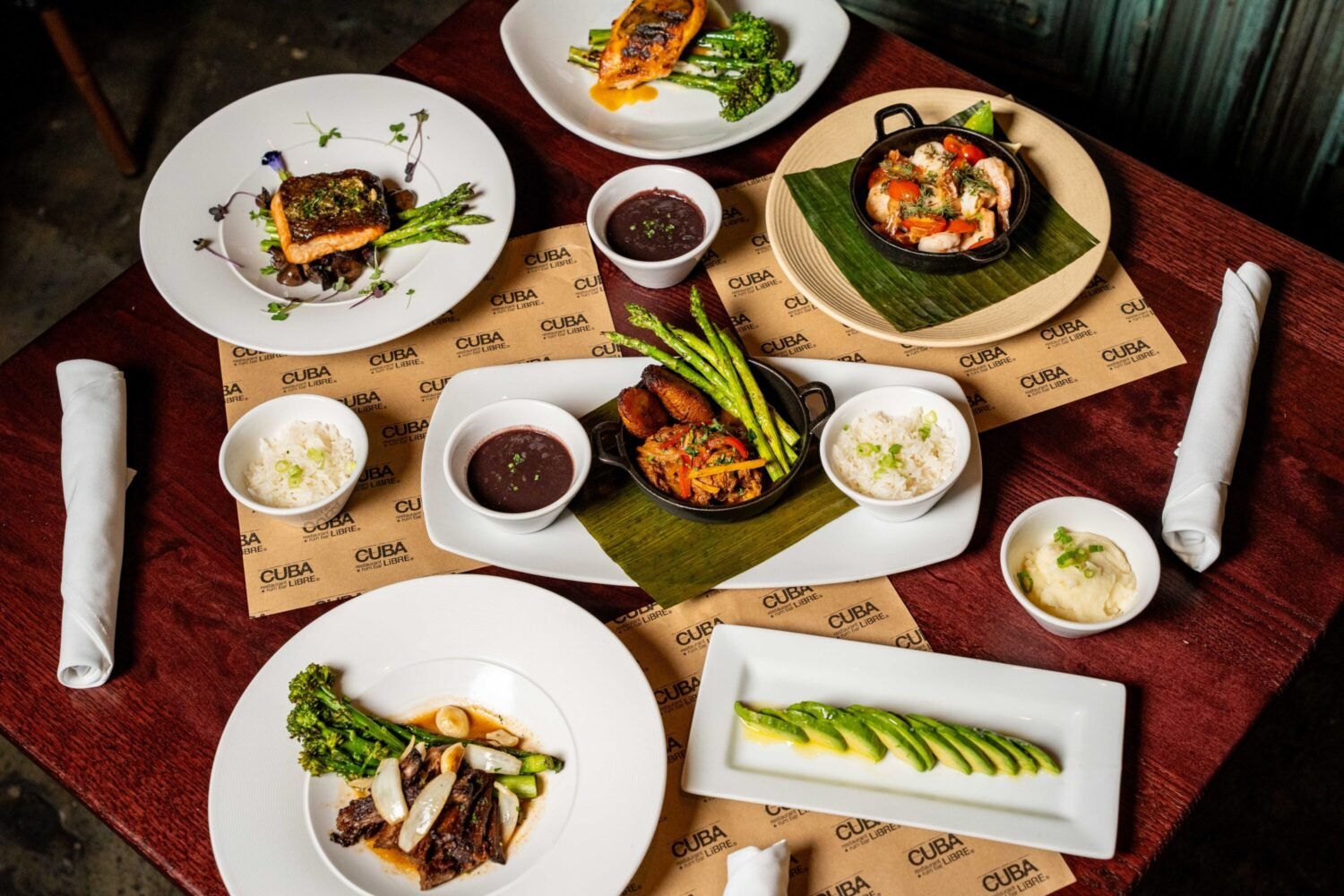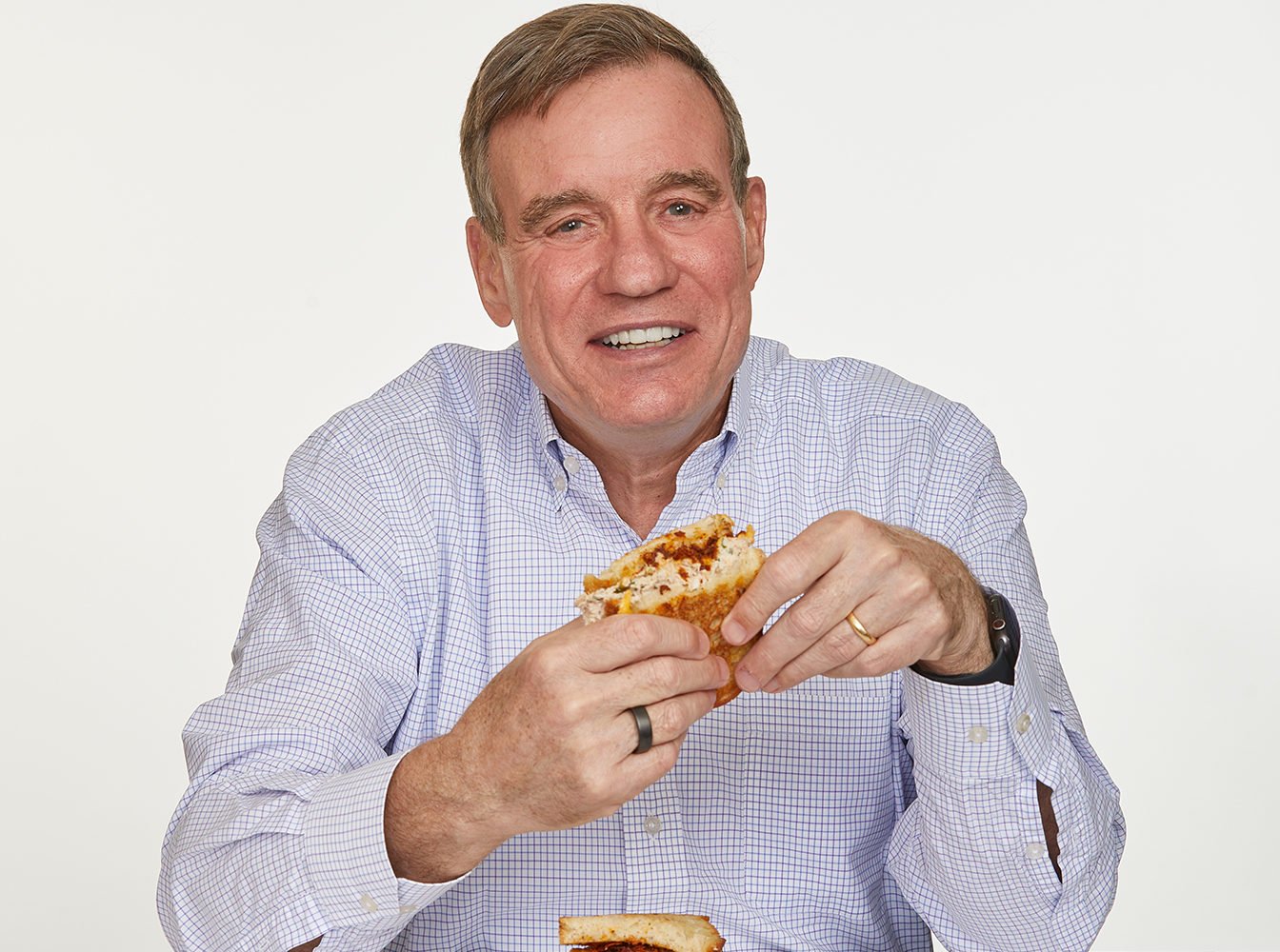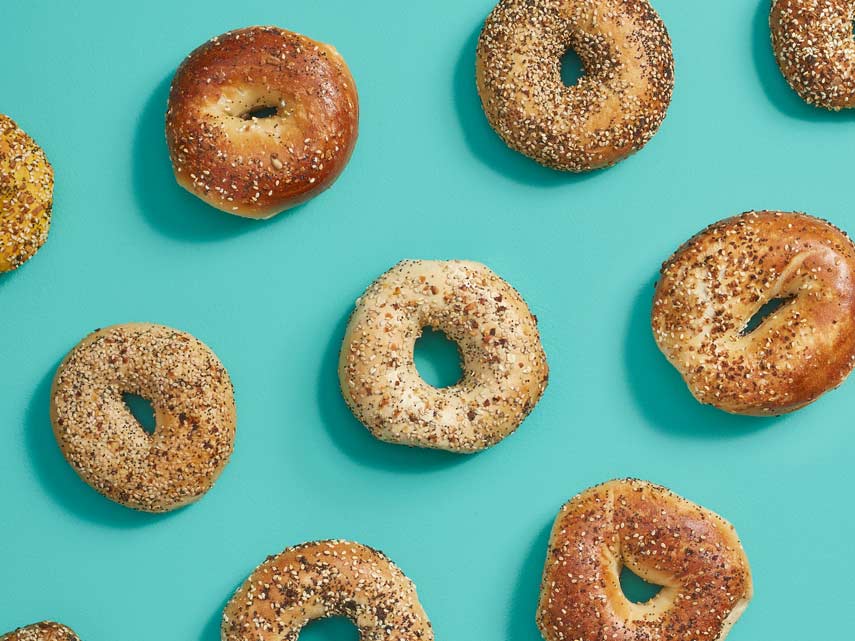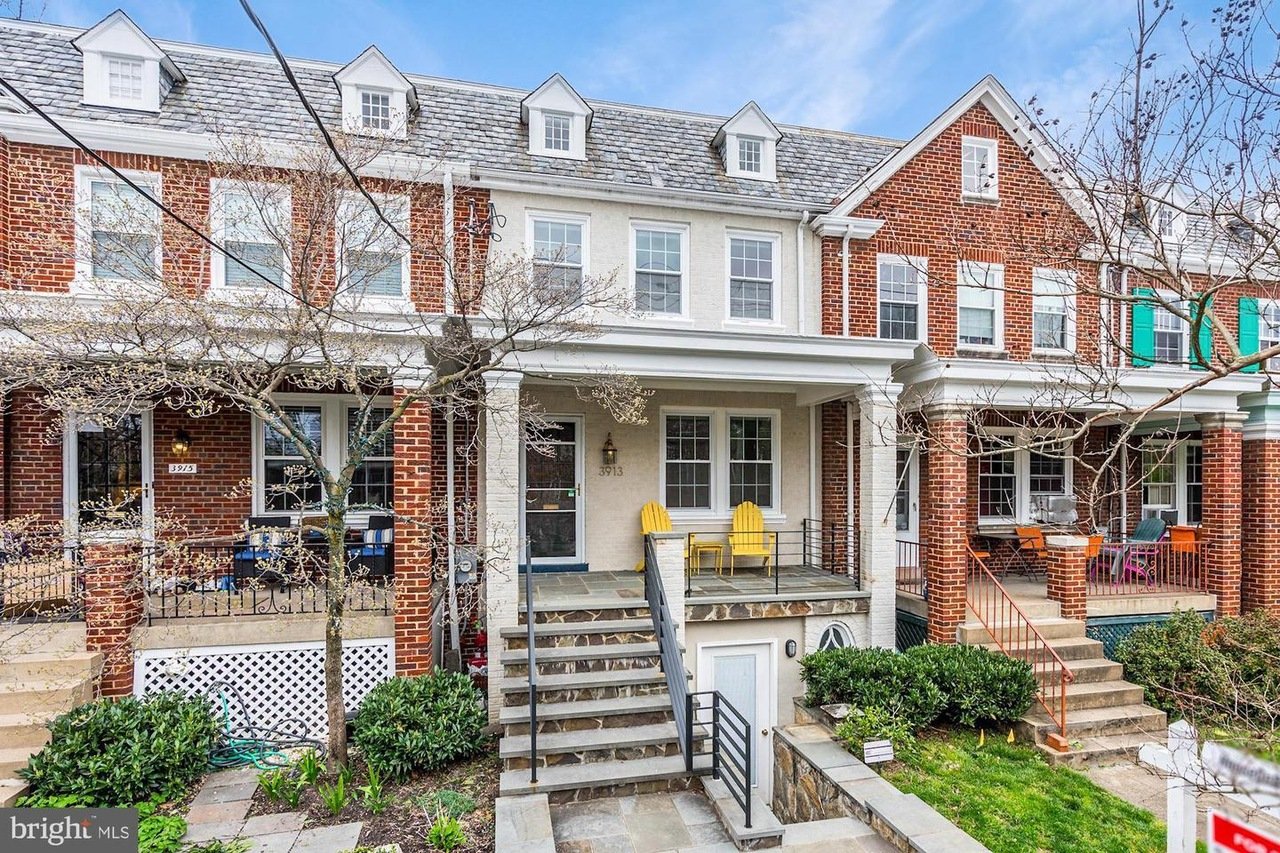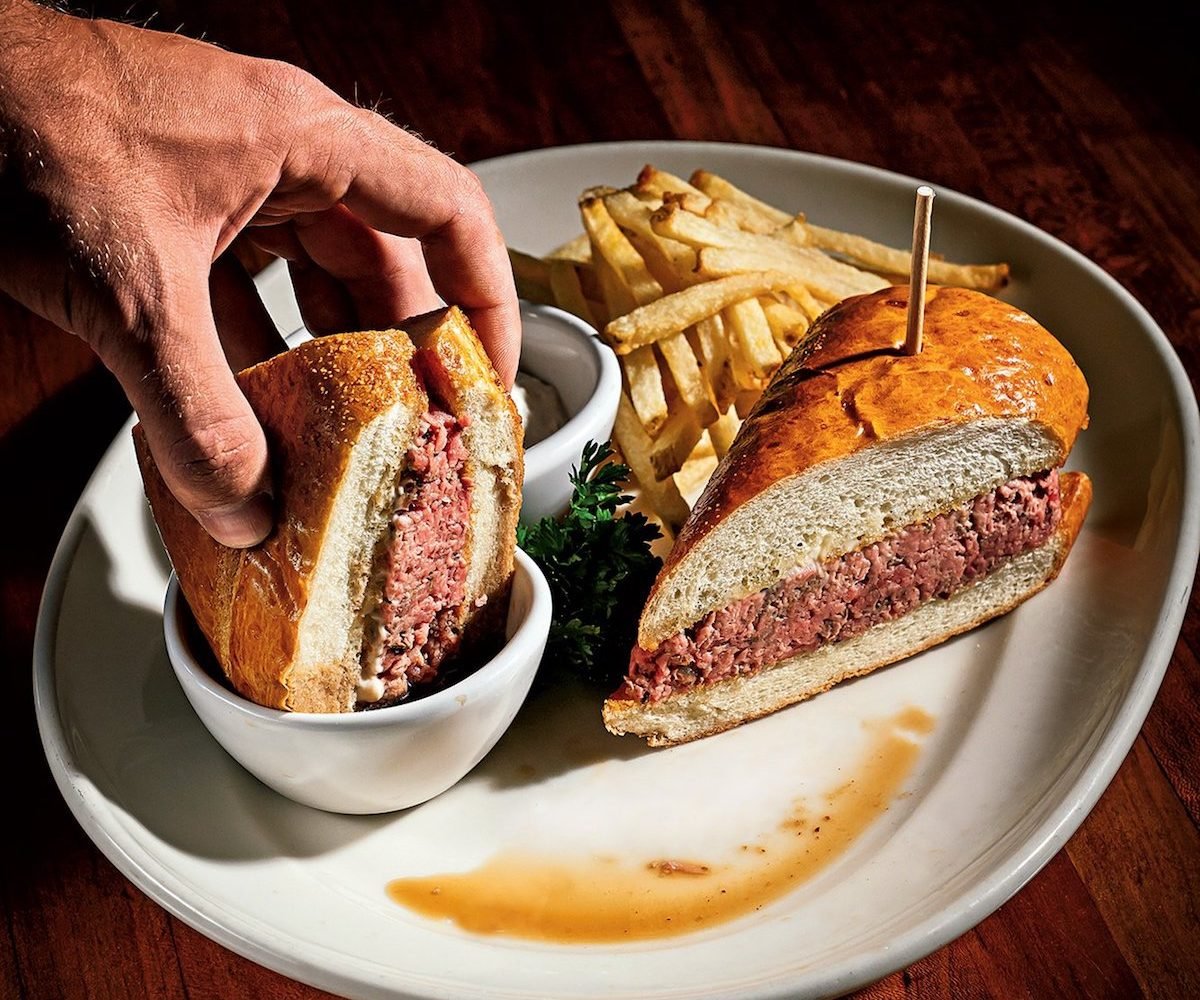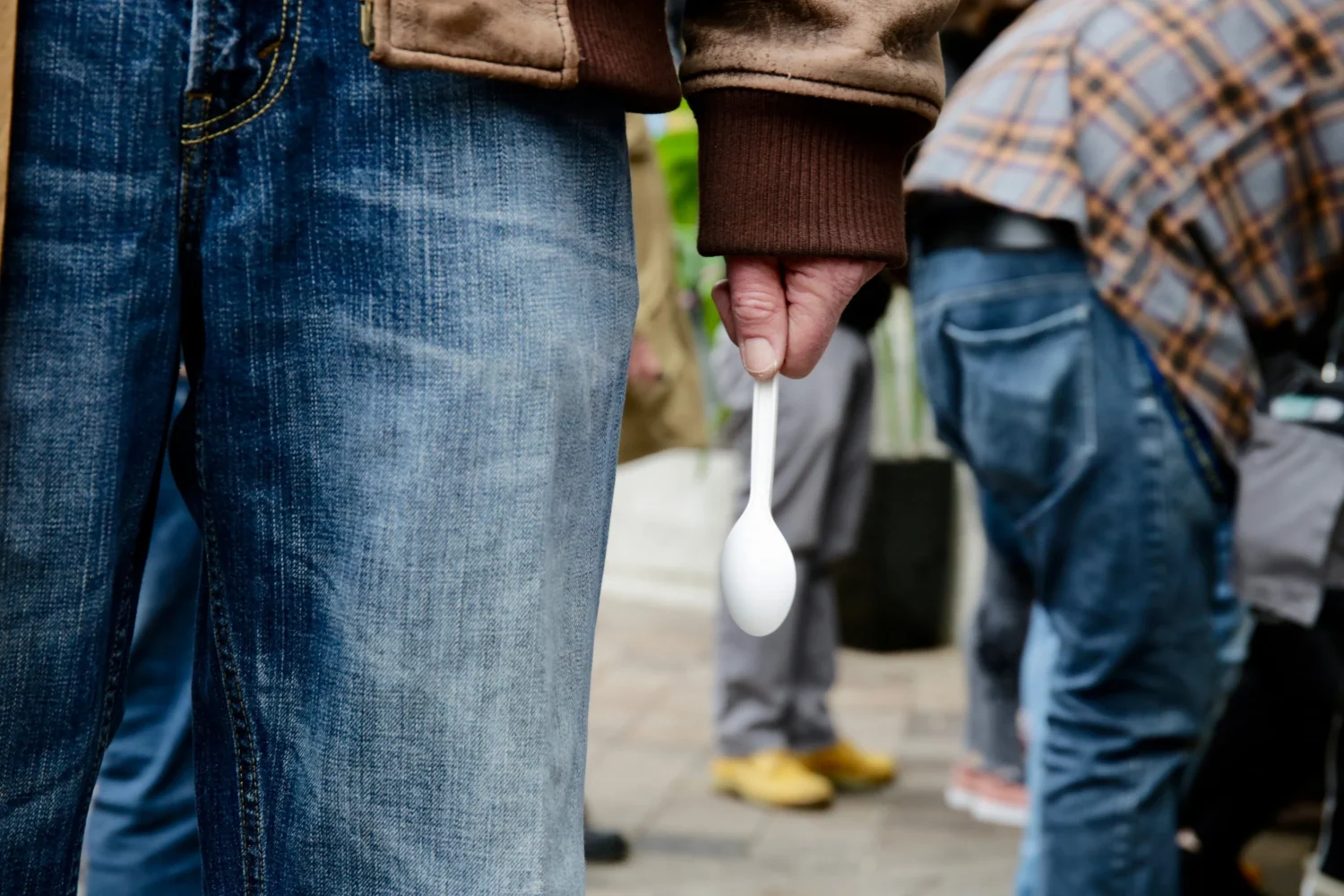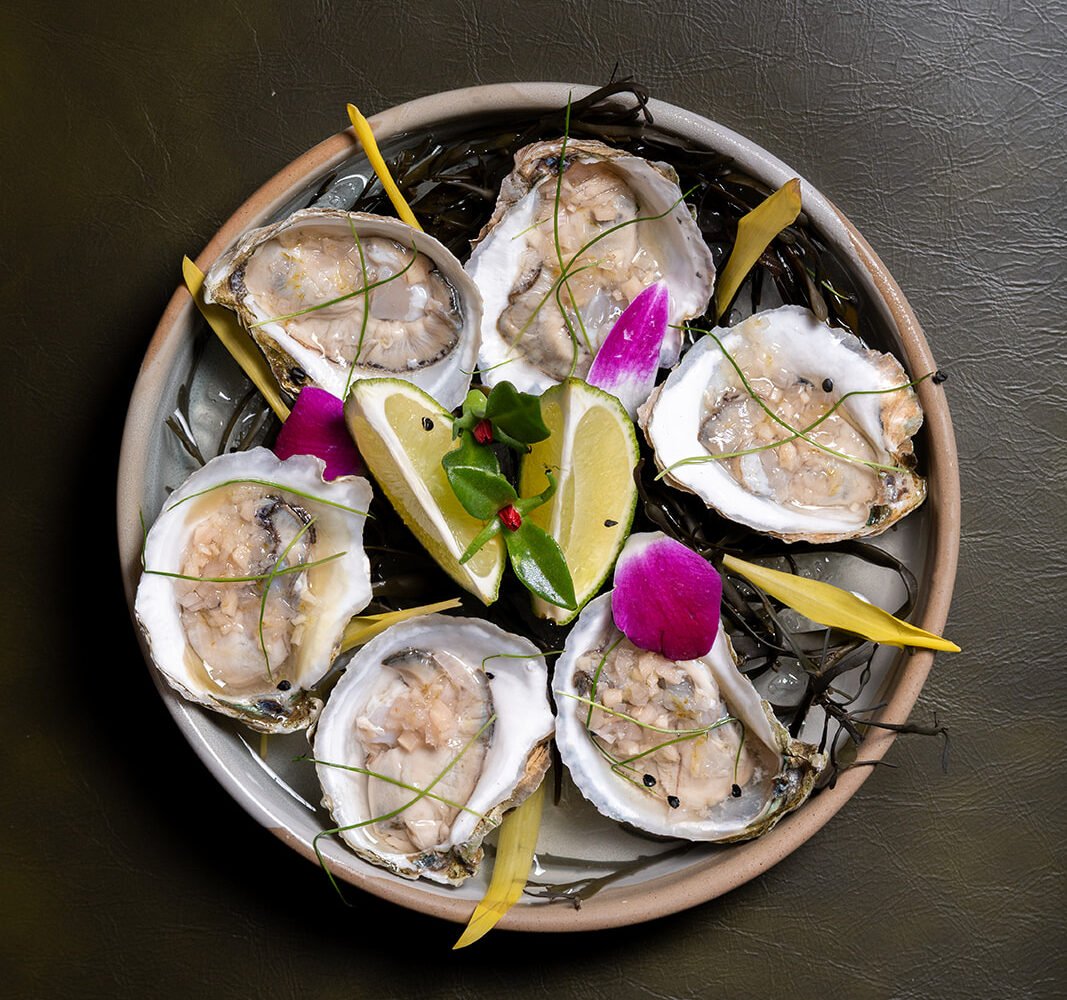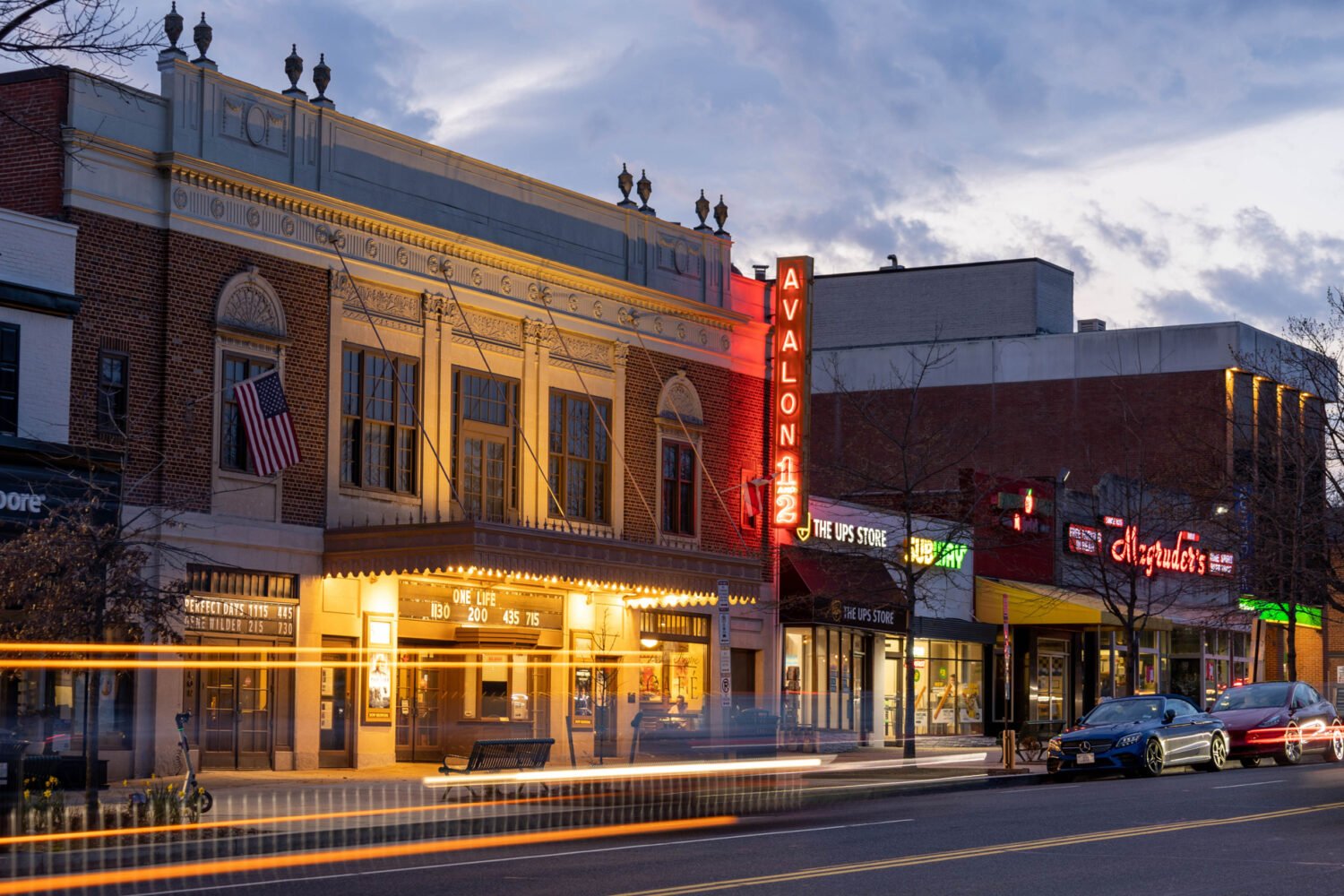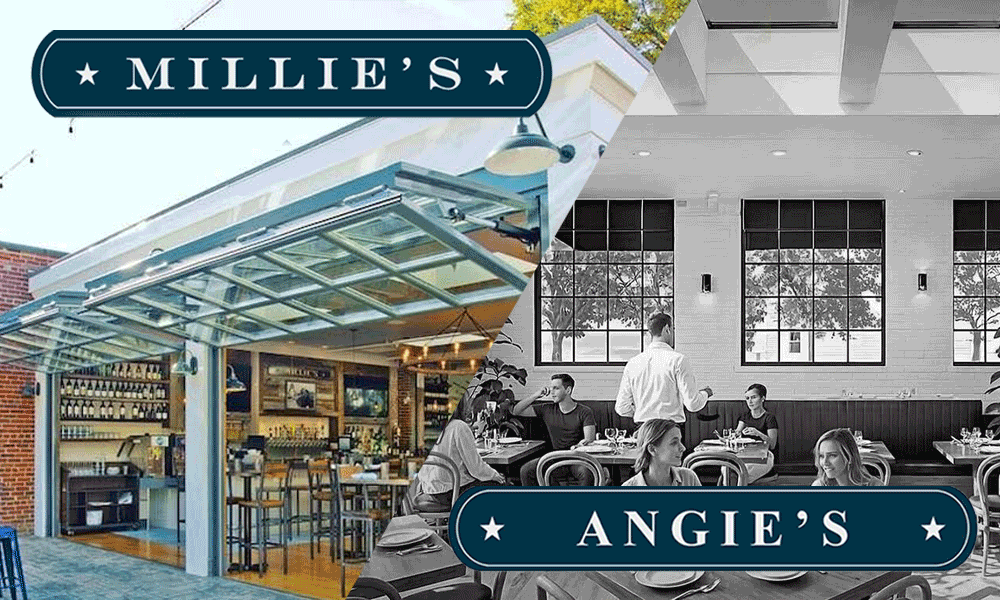Pardon our astonishment, but rarely do smartphone apps that offer deliveries of packaged goods actually live up to their pre-launch hype. Drizly, an alcohol-delivery app that launched in DC this week, managed to make good on its promises of speedy service when we decided the best use of an early-afternoon power outage that struck Washingtonian’s office would be to go on a digital beer run.
It took 15 minutes after punching in an order on an iPhone for ten cold bottles of Boulevard 80-Acre wheat ale and Bear Republic Racer 5 India pale ale to appear in our building’s lobby. Not bad.
Let’s peel back the top layer of mobile sheen, though. Drizly—which, obviously, Silicon Valley navel-gazers already refer to as the “Uber for liquor”—is still far from being a ubiquitous thirst-quencher. Based in Boston, the app is entering the DC market in a similar manner that more widely known services such as Postmates did, limiting its coverage area to Capitol Hill, downtown, Georgetown, Columbia Heights, Dupont Circle, and Upper Caucasia.
But a bigger reason Drizly covers so little of DC is its setup. Unlike Postmates, which sends contracted couriers to any store or restaurant of a customer’s command, Drizly merely transmits orders to liquor stores with delivery services of their own. The app also needed to be approved by the city’s Alcoholic Beverage Regulation Administration before starting up. One of its competitors, Ultra, was shut down after its initial launch in June for selling booze without a license; it’s since obtained one. (Society may applaud Uber’s flagrant dismissal of local taxi regulations, but it’s more stringent where alcohol is concerned.)
The first store to be linked up with Drizly at its DC launch is Sherry’s Wine and Spirits. The Woodley Park liquor store is reliably voluminous, but because it’s the only store serving Drizly so far, the brick-and-mortar inventory dictates what the app can offer. Our first-choice beer, Abita Turbodog, was sold out when we browsed Drizly’s menus. We also considered a 12- or 24-can pack of Budweiser, but scrolled back when Bud Heavy only appeared in six-bottle packs. (A Drizly representative says the company has a partnership with one other store, and may add more if demand grows.)
Still, the shopping process was not that alien, even if it did take us 20 minutes to decide what to get. (Hey, even in the digital realm, some of us like to really ruminate on what beer to buy.) The biggest difference in the shopping experience is not being able to consult store employees about what drink is best.
Still, the test run was impressive. Our order went through at 1:49. Fifteen minutes later, during which our delivery driver was trackable on a map, Sherry’s co-owner Danny Desai was standing in our lobby with a blue Drizly tote bag containing our beer. Desai says Sherry’s will keep up its traditional phone-based deliveries—many of which go to hotel rooms—though he expects the app will quickly become the dominant ordering platform (automated credit-card payments, no risk of being put on hold, etc.). And in case Drizly does become some kind of world-beating “Uber for liquor” and changes the way we drink in our homes, Desai seems braced for the possibility.
“It’s a new age,” he says. “People love that they don’t have to come into the store.”
Find Benjamin Freed on Twitter at @brfreed.

